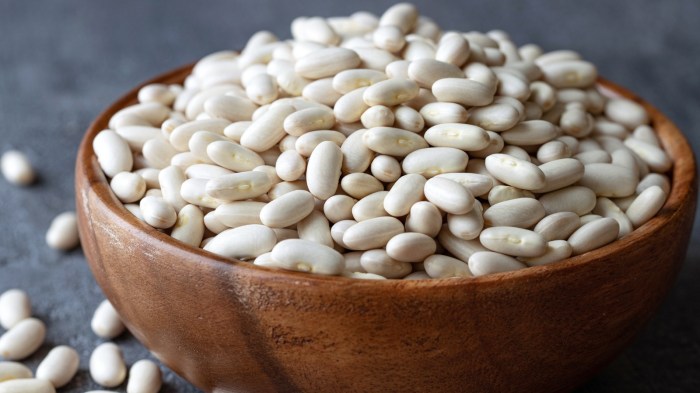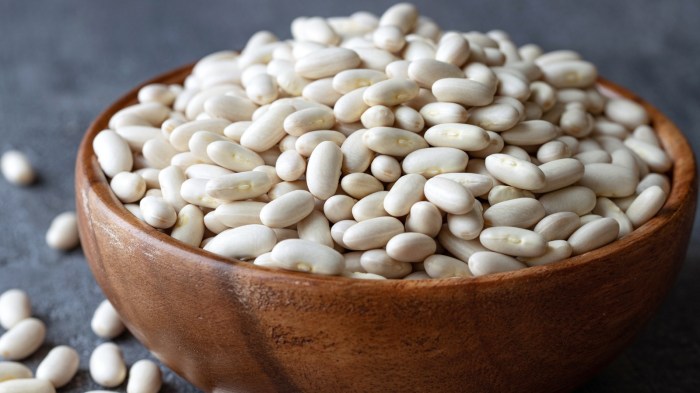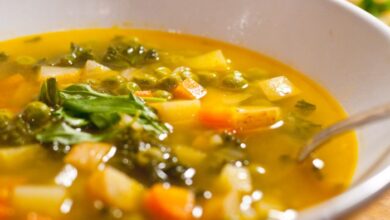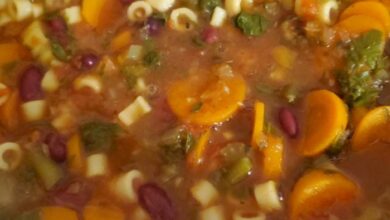
Middle Eastern White Beans: A Culinary Journey
Middle Eastern white beans are more than just a humble legume; they are a culinary cornerstone in this vibrant region, woven into the fabric of everyday life and cherished celebrations. From the creamy, comforting flavors of fava beans in Egyptian ful medames to the hearty, savory stew of white beans in Moroccan harira, these versatile beans offer a tapestry of textures and tastes.
The Middle East boasts a diverse array of white bean varieties, each with its unique characteristics. From the plump, buttery fava beans to the smaller, more delicate white kidney beans, these beans are used in a myriad of ways, from simple side dishes to complex, multi-layered stews.
Their nutritional profile is impressive, offering a wealth of protein, fiber, and essential vitamins and minerals.
Culinary Techniques for Preparing Middle Eastern White Beans

Middle Eastern cuisine is renowned for its diverse flavors and the skillful use of simple ingredients. White beans, a staple in many Middle Eastern dishes, are prepared in various ways, each imparting a unique texture and flavor to the final dish.
Soaking and Cooking White Beans, Middle eastern white beans
Soaking white beans before cooking is essential for several reasons. It helps soften the beans, reducing cooking time and improving digestibility. Soaking also helps remove any impurities and improves the flavor of the beans. Here’s how to soak and cook white beans:
- Soaking:Rinse the beans thoroughly under cold water. Place the beans in a large bowl and cover them with cold water. Add 1 teaspoon of salt to the water. Soak the beans for at least 8 hours, or overnight, in a cool place.
- Cooking:Drain the soaked beans and transfer them to a large pot. Add fresh water, ensuring the water level is about 2 inches above the beans. Bring the water to a boil, then reduce the heat to low and simmer for 1-2 hours, or until the beans are tender.
Seasoning White Beans
The spices and seasonings used in Middle Eastern cuisine are what truly define its unique flavor profile. Common spices used in white bean dishes include cumin, turmeric, paprika, coriander, cinnamon, and cloves. Here are some popular seasoning techniques:
- Simple Seasoning:In a simple approach, sauté onions and garlic in olive oil until softened. Add the cooked beans, along with cumin, turmeric, and salt, and simmer for a few minutes until the flavors meld.
- Spice Blend:A more complex approach involves using a pre-made spice blend, often called “Baharat,” which typically includes cumin, coriander, paprika, cinnamon, cloves, and black pepper. This blend is added to the beans towards the end of cooking, creating a fragrant and flavorful dish.
- Citrus and Herbs:The addition of lemon juice, fresh herbs like parsley and mint, and a touch of harissa paste adds a bright and tangy flavor to the dish.
White Beans in Middle Eastern Culture and Tradition: Middle Eastern White Beans
White beans, a staple in many Middle Eastern cuisines, hold a special place in the region’s cultural fabric. Beyond their culinary value, these humble legumes are deeply entwined with traditions, celebrations, and even medicinal practices, reflecting their enduring significance throughout history.
White Beans in Middle Eastern Celebrations and Festivals
White beans often take center stage in Middle Eastern celebrations and festivals, symbolizing abundance, prosperity, and good fortune. Their presence in these events highlights their cultural significance and deep-rooted connection to the region’s traditions.
- Ramadan:During the holy month of Ramadan, many Middle Eastern families prepare traditional dishes featuring white beans, such as foul medames, a hearty and flavorful fava bean dip. This dish is often served during suhoor, the pre-dawn meal, providing sustenance for the day ahead.
The abundance of white beans symbolizes the blessings and bounty associated with Ramadan.
- Weddings and Special Occasions:White beans are frequently incorporated into celebratory meals, representing the hope for a plentiful and prosperous future. Foul medames, mouloukia, and other white bean dishes are often served at weddings, engagements, and other special occasions, adding a touch of tradition and cultural significance to these joyous events.
- Religious Festivals:White beans are also associated with various religious festivals throughout the Middle East. For instance, during Eid al-Fitr, the festival marking the end of Ramadan, many families enjoy dishes featuring white beans, signifying the joy and celebration of the occasion.
Anecdotes and Stories Highlighting the Cultural Significance of White Beans
Beyond their presence in celebratory meals, white beans are often woven into stories and anecdotes that highlight their cultural significance. These tales offer glimpses into the historical and cultural context surrounding these humble legumes.
“In ancient times, white beans were believed to be a symbol of fertility and prosperity, and were often used in rituals and offerings to ensure a bountiful harvest.”
“In some Middle Eastern cultures, it is considered good luck to eat white beans on the first day of the new year, as they are believed to bring prosperity and abundance for the year ahead.”
“Many Middle Eastern grandmothers have passed down recipes for traditional white bean dishes, sharing their knowledge and culinary expertise with generations to come. These recipes often hold sentimental value and are cherished for their connection to family history and tradition.”
White Beans in Traditional Medicine and Remedies in the Middle East
In addition to their culinary uses, white beans have long been valued for their medicinal properties in traditional Middle Eastern medicine. Their nutritional content and therapeutic benefits have made them a staple in various remedies and treatments.
- Digestive Health:White beans are rich in fiber, which is essential for maintaining a healthy digestive system. They are often recommended for relieving constipation and promoting regular bowel movements.
- Blood Sugar Control:The high fiber content in white beans can help regulate blood sugar levels, making them a beneficial food for individuals with diabetes.
- Heart Health:White beans are a good source of folate and potassium, both of which are important for maintaining cardiovascular health. They are also low in saturated fat, making them a heart-healthy choice.
- Anti-Inflammatory Properties:White beans contain antioxidants that may help reduce inflammation throughout the body. These properties have been associated with various health benefits, including improved joint health and reduced risk of chronic diseases.
Middle Eastern white beans, with their earthy flavor and creamy texture, are a staple in many cuisines. They’re delicious in salads, stews, and even dips. But for a truly comforting meal, I love pairing them with a side of broccoli risotto with cream and lemon.
The creamy risotto and the earthy beans make a perfect match, and the bright lemon adds a touch of freshness. The combination is a delicious way to showcase the versatility of these humble beans.
Middle Eastern white beans are a staple in many dishes, adding a creamy texture and earthy flavor. While I love them in traditional stews and salads, I also find myself craving something sweet after a hearty bean meal. That’s where my favorite pumpkin cookies with cream cheese frosting the worlds best come in! The warm spices in the cookies perfectly complement the earthy notes of the beans, creating a delightful flavor combination.






